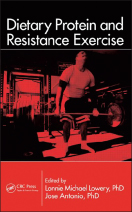 With the glut of information available over the Internet about nutrition and exercise, it’s easy to become confused. The problem with the Internet is quality control. Anyone can write anything and have it published there. That, in turn, means that a large percentage of information offered on the Internet is inaccurate, badly researched or not researched at all and is possibly even dangerous. So where do you go if you want to know the unvarnished truth about sports nutrition and exercise? One good source is this magazine. IRON MAN has a long and well-deserved reputation for reporting the truth about what works and what doesn’t in relation to various diets and supplements. As with all publications, though, there is a limit to how much can be told because of commercial constraints.
With the glut of information available over the Internet about nutrition and exercise, it’s easy to become confused. The problem with the Internet is quality control. Anyone can write anything and have it published there. That, in turn, means that a large percentage of information offered on the Internet is inaccurate, badly researched or not researched at all and is possibly even dangerous. So where do you go if you want to know the unvarnished truth about sports nutrition and exercise? One good source is this magazine. IRON MAN has a long and well-deserved reputation for reporting the truth about what works and what doesn’t in relation to various diets and supplements. As with all publications, though, there is a limit to how much can be told because of commercial constraints.
Another superior source of information about nutrition is professional journals. Most of the studies published in them are unbiased, unless they’re sponsored by a specific company. If you don’t have the time or inclination to peruse the dozens of professional journals related to nutrition, your next option is a book. Sadly, many of the books related to sports nutrition aren’t very good. They offer little or no new information and often reflect the bias of the authors. What you need is a solid, science-based book that is definitive. I’ve found one publisher that seems to be consistent in this regard.
CRC Press publishes a slew of books related to nutrition that are comprehensive in their coverage. I reviewed one of them a few years ago, Amino Acids and Protein for the Athlete by Mauro DiPasquale. That book, while written in a technical style, offers a complete picture of how proteins and amino acids affect training. The latest book from CRC Press is Dietary Protein and Resistance Exercise. Similarly to the previously mentioned protein book, it tends to be on the technical side but is easily understandable by anyone who has a few years of training under his or her belt.
Dietary Protein and Resistance Exercise covers historical aspects of protein use by athletes, how protein is used in the body, safety issues related to protein intake, the properties of various types of proteins and how protein affects female athletes, and it even covers protein products like beta-alanine and creatine. As I said, this isn’t light reading but is very comprehensive. I would recommend it for anyone who wishes to know all the nuances of protein intake and metabolism. After reading it, you’ll never be confused about any issue related to protein and bodybuilding.




















You must be logged in to post a comment Login